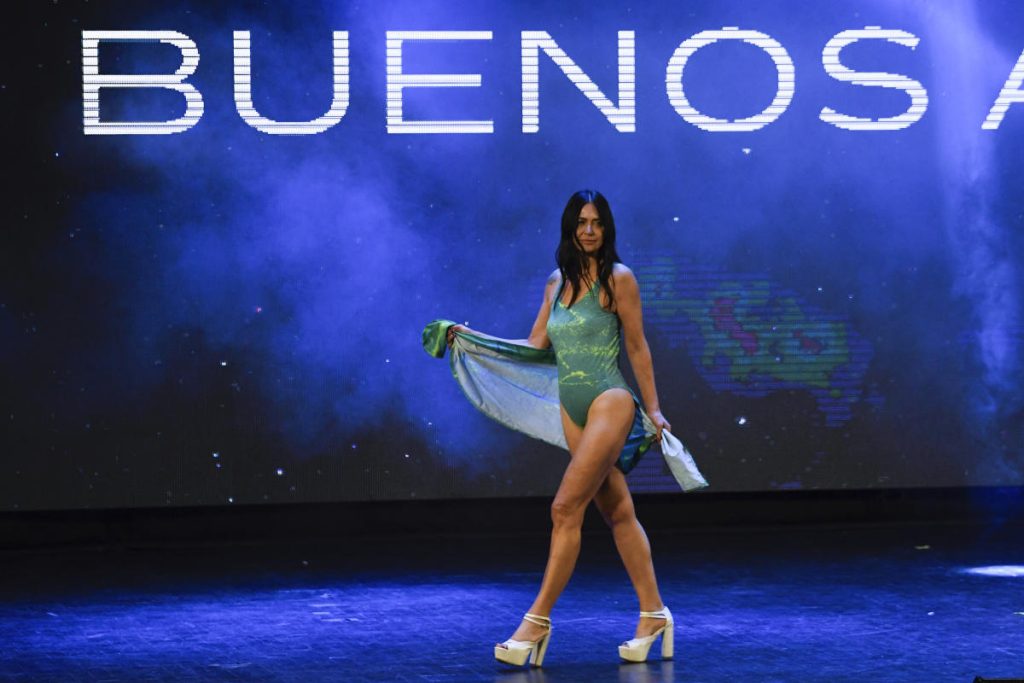Alejandra Marisa Rodríguez, a 60-year-old hospital legal adviser from La Plata, Argentina, made headlines when she entered the Miss Argentina contest, becoming the oldest contestant in the competition’s history. Despite not winning the crown, she did take home the title of “best face.” Her entry challenged ageism in society and inspired global media attention. Rodríguez emphasized that age is just a number and that her participation opened a new door for many people who may not have had opportunities.
During the swimsuit portion of the pageant, Rodríguez wore a modest one-piece suit with a shawl, showcasing her confidence and grace. However, the crown went to 29-year-old actress and model Magali Benejam from Cordoba. Benejam impressed the judges with her skimpy blue bikini and sky-high stilettos, ultimately winning the title of Miss Argentina and the chance to represent the country in the upcoming global competition in Mexico City. The victory was significant as age restrictions were lifted, allowing participants over 18 to compete for the first time in the pageant’s 73-year history.
The Miss Universe contest has undergone various changes in recent years to address feminist criticisms and align with shifting cultural norms. Traditional requirements and restrictions have been removed, including eligibility for married, pregnant, lesbian, and transgender women. The focus shifted from physical beauty to embracing empathy, confidence, and authenticity as feminine ideals. While the contest aimed to be inclusive, the mention of “young women” and restrictions on aging signs like crow’s feet remained, sparking debate among activists and women about unrealistic beauty standards.
While some praised Rodríguez for challenging stereotypes and pushing boundaries, others questioned whether she was setting an unattainable standard for older women. Her flawless appearance and youthful features raised concerns about pressuring women to look young and fresh, regardless of their age. Feminist activists like Lala Pasquinelli highlighted the societal expectations placed on women to maintain a certain appearance and suggested that not everyone can achieve the same level of physical perfection. Rodríguez’s participation in the contest raised important discussions about beauty standards and aging in society.
Rodríguez’s journey from a soft-spoken lawyer to a local celebrity showcased the power of challenging norms and embracing new challenges. Despite not winning the Miss Argentina crown, her presence in the competition sparked conversations about ageism, beauty standards, and inclusivity. Her story resonated with many as a symbol of empowerment and defiance against societal expectations. The evolving landscape of beauty pageants, including Miss Universe, reflects changing attitudes towards gender norms, beauty ideals, and diversity. As the competition continues to adapt to modern values and inclusivity, individuals like Rodríguez play a vital role in redefining traditional beauty standards and embracing diversity in all its forms.


